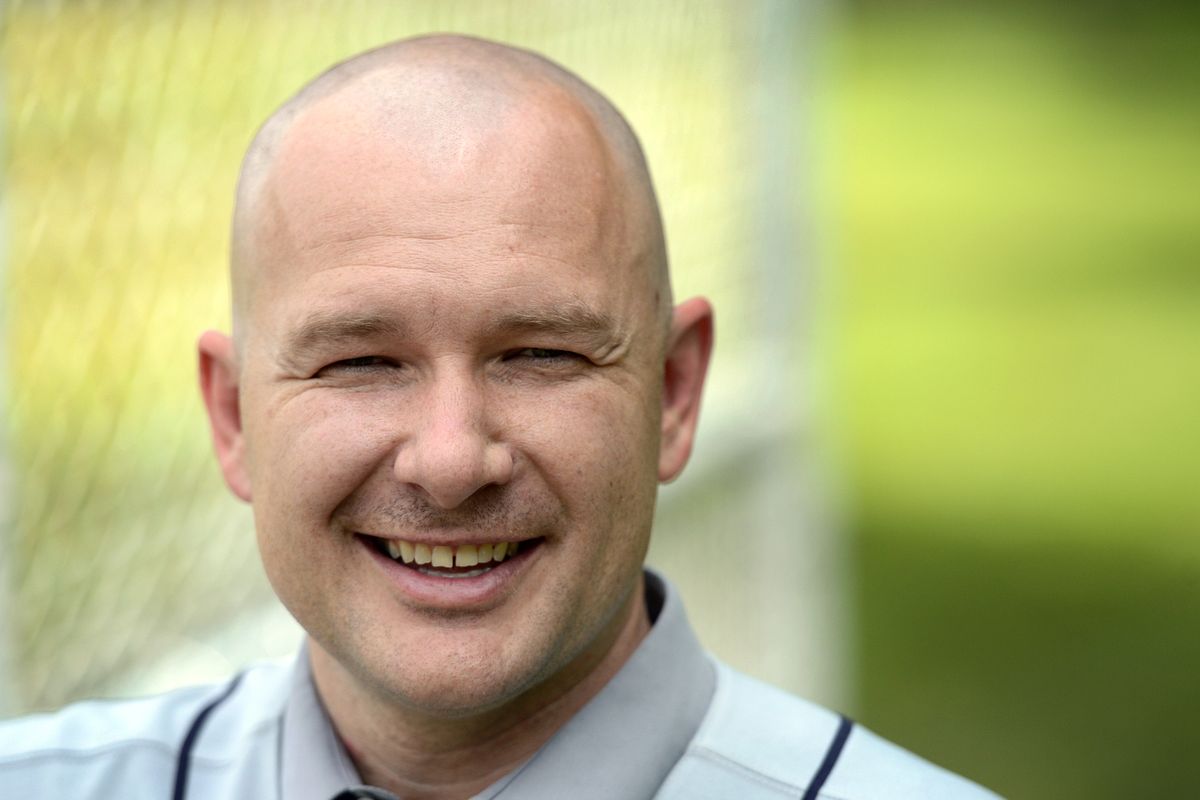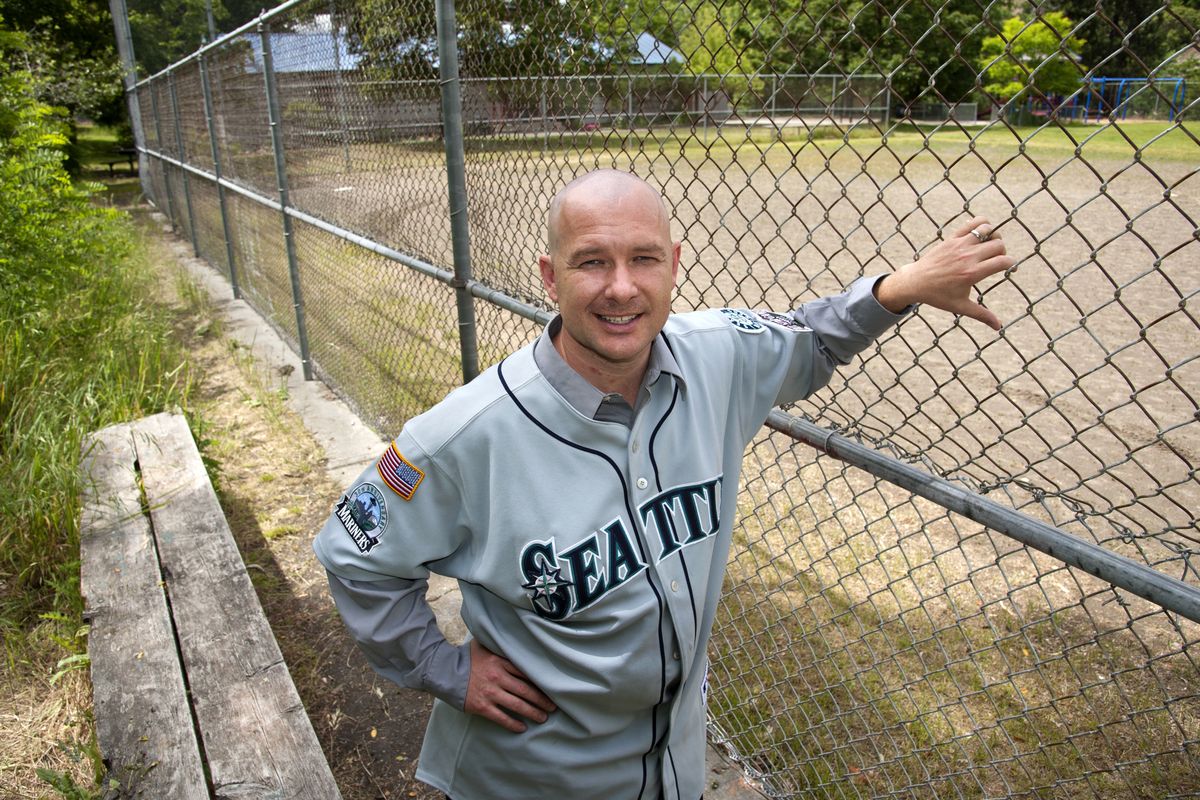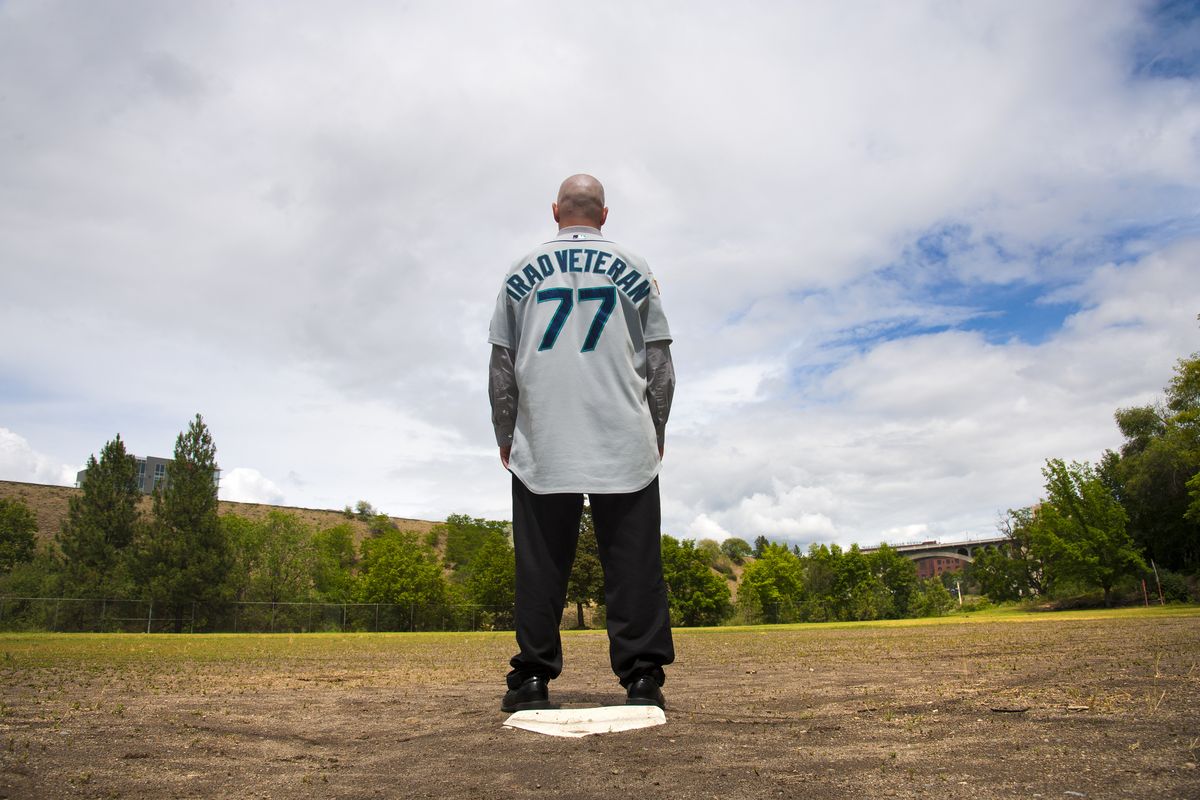Cheney veteran up for honor at All-Star game
Army veteran Phil Kiver, who is from Cheney and saw action in Iraq and Afghanistan, is one of three Tribute for Heroes finalists to represent the Mariners. (Dan Pelle)Buy a print of this photo
Phil Kiver knows why he’s in the running for a national veteran’s award.
“I’ve had an interesting life,” Kiver said.
The 36-year-old Cheney man fought in two wars, and still is fighting another battle at home for soldiers suffering from post-traumatic stress disorder.
Kiver’s cause is getting national attention now that he’s one of 90 finalists in the national Tribute for Heroes campaign sponsored by Major League Baseball and People magazine. “That’s my Miss America cause, and I’m running with it,” Kiver said.
If he can get a few more votes, Kiver could be among the 30 veterans and other military service members to win a trip to next month’s All-Star game in New York. The voting deadline is Sunday; Kiver is competing against two other veterans, one from Washington and one from Maryland, to be the top vote-getter to represent the Seattle Mariners.
Kiver was both flattered and humbled when he got the call on June 9 from Major League Baseball.
“The baseball fan in me says I’ll do anything to go to the All-Star game, but the veteran in me says surely there must be someone who deserves it more than me,” Kiver said.
Perhaps, but the public relations folks at Major League Baseball explained that it would be a “depressing photo op” to see 30 burned and maimed veterans in prime time.
More to the point, heroes are forged in cubicles as well as foxholes. A PTSD sufferer who also has hearing loss, Kiver works for the City of Spokane Valley, specializing in veterans affairs.
Kiver, a farm kid from Cheney, graduated from Eastern Washington University in the fall of 2001. Already in the Army National Guard, he quit and joined the Army because he wanted to see action in Iraq.
Kiver later saw action in Afghanistan, and was stationed in Chile, Kyrgyzstan and Germany. While stationed in Fort Hood, Texas, he earned a master’s degree in military history from American Military University.
He’s also published three books covering his time in Iraq, using them to advocate for other disabled veterans.
Kiver has witnessed the cycle firsthand: wars begin with yellow ribbons and end with red tape, as returning veterans struggle to get help for wounds to body and mind.
“People see the body bags, the multiple deployments, and people get desensitized and jaundiced to the whole concept of what’s going on,” he said.
“They lose the sense of what’s important.”
For Kiver and other veterans, that means better access to medical services at Veterans Affairs facilities: “I can’t see my primary care physician for three months, because they’re backlogged.”
Kiver says that the Veterans Affairs employees “mean well,” but are overworked and underpaid. That will change only with better funding, he believes.
“Until that’s addressed, veterans will continue to harm themselves or others,” Kiver said. “God forbid that some Marine who can’t get into a mental health program in his home town goes to Riverfront Park and shoots a bunch of people.
“Then you can look back and ask how many times that veteran had asked to be seen.”
How to vote
To vote in the Tribute for Heroes contest, go to mlb.com/tribute/2013. Then click on the logo for your favorite Major League Baseball team and choose one of three finalists. The deadline is Sunday.


